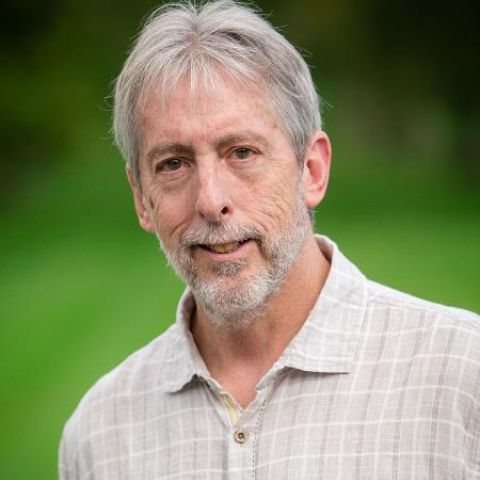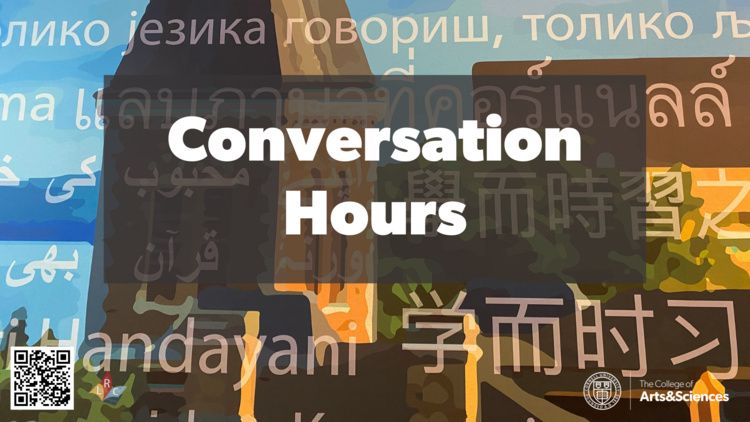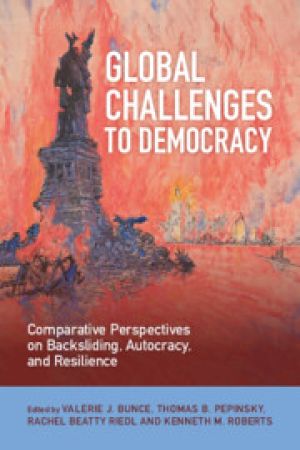Latin American and Caribbean Studies
World in Focus: Global Responses to Trump

Join us on Jan. 27 to talk about the Trump administration's imperial actions and what they mean for the rest of the world.
Kenneth Roberts

Richard J. Schwartz Professor, Government
Kenneth Roberts teaches comparative and Latin American politics, with an emphasis on the political economy of development and the politics of inequality. His research focuses on political parties, populism, labor and social movements, and democratic resilience. He is especially interested in the cases of Chile, Peru, Venezuela, and Argentina.
He led the Einaudi Center's democratic threats and resilience global research priority in academic years 2022–25.
Additional Information
Portuguese Conversation Hour

February 25, 2026
4:30 pm
Stimson Hall, G25
Come to the LRC to practice your language skills and meet new people. Conversation Hours provide an opportunity to use the target language in an informal, low-pressure atmosphere. Have fun practicing a language you are learning! Gain confidence through experience! Just using your new language skills helps you learn more than you might think. Conversation Hours are open to any learner, including the public.
Additional Information
Program
Latin American and Caribbean Studies
Funding for Faculty
Apply now for Einaudi research support!
Proposals are due March 16 for seed grants and new targeted support for early-career faculty with research in international studies.
Additional Information
World in Focus: Global Responses to Trump

January 27, 2026
4:00 pm
Uris Hall, G08
Join Einaudi Center experts for World in Focus Talks on global events in the news and on your mind. Our faculty's research and policy insights put the world in focus.
This year we’re hosting informal campus discussions on many Tuesday afternoons. This week’s topic:
The United States helped create the United Nations to protect the sovereignty of independent countries. Now the Trump administration is setting the tone for superpowers with imperial ambitions by waging economic war against democratic allies, violating long-standing treaties, and holding out the possibility of using military force.
What do these unprecedented actions mean for the rest of the world? How are states and peoples in different regions responding? And what may happen if tensions continue to escalate?
***
Featured Faculty
Agnieszka Nimark (PACS) | Affiliated ScholarMagnus Fiskesjö (EAP, PACS, SEAP) | AnthropologyAlexandra Blackman (SWANA) | GovernmentSeema Golestaneh (SWANA) | Near Eastern StudiesIrina Troconis (LACS) | Romance StudiesKenneth Roberts (LACS) | GovernmentPeter Katzenstein (IES, PACS) | Government
***
Conversations Matter at Einaudi
This conversation is hosted by the Mario Einaudi Center for International Studies and its regional and thematic programs. Find out what's in store for students at Einaudi!
Additional Information
Program
Einaudi Center for International Studies
Reppy Institute for Peace and Conflict Studies
East Asia Program
Southeast Asia Program
Latin American and Caribbean Studies
Institute for African Development
Institute for European Studies
South Asia Program
Migrations Program
Southwest Asia and North Africa Program
Global Challenges to Democracy: Comparative Perspectives on Backsliding, Autocracy, and Resilience

By Our Faculty
Following democracy's global advance in the late 20th century, recent patterns of democratic erosion or 'backsliding' have generated extensive scholarly debate. Backsliding towards autocracy is often the work of elected leaders operating within democratic institutions, challenging conventional thinking about the logic of democratic consolidation, the enforcement of institutional checks and balances, and the development and reproduction of democratic norms.
Book
35.99
Additional Information
Program
Institute for African Development
Institute for European Studies
Type
- Book
Publication Details
Publication Year: 2025
ISBN: 9781009602570
Waste Workers and Water Wars in Chile: Writing the Labor and Environmental History of Chile's Rivers

April 28, 2026
12:20 pm
Uris Hall, G08
TBD
Additional Information
Program
Einaudi Center for International Studies
Latin American and Caribbean Studies
TBD

April 14, 2026
12:20 pm
Uris Hall, G08
TBD
Additional Information
Program
Einaudi Center for International Studies
Latin American and Caribbean Studies
Barbadian Emigration to Liberia: Transnational Blackness in the Making of an African Nation

March 16, 2026
3:00 pm
160, Mann Library
TBD
Additional Information
Program
Einaudi Center for International Studies
Latin American and Caribbean Studies
Institute for African Development
Migrations Program
Biofortification of staple crops to improve nutrition in Latin America and the Caribbean

March 10, 2026
12:20 pm
Uris Hall, G08
TBD
Additional Information
Program
Einaudi Center for International Studies
Latin American and Caribbean Studies
